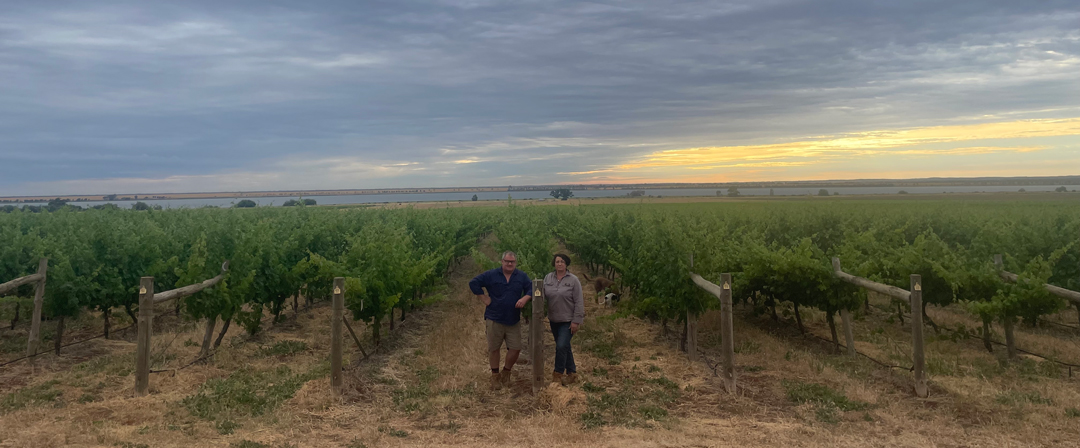Small business & Sustainable Development Goals (SDGs)
Our research will investigate if Australian small and medium-sized enterprises (SMEs) have adopted the United Nation's (UN's) Sustainable Development Goals (SDGs) and what internet technologies are used to achieve these goals.
Project details
The inaugural Commonwealth of Australia Foreign Affairs, Defence and Trade Reference Committee 2019 Report on global Sustainable Development Goals (SDGs) identified that many small and medium-sized enterprises (SMEs) have not adopted the United Nation's (UN’s) SDGs.
Recent studies identified that there is no evidence of SME contribution to the UN's 2030 Agenda. The studies attribute this to SMEs being challenged by the absence of “hands-on actional tools that link to SDGs with business processes.”1
Further studies show a lack of knowledge on how SMEs are adopting SDGs to foster sustainable responsible practices and what internet technologies are employed.2
An analytical research report and industry report with success case stories will be produced and made public on the Victoria University and project partners' websites.
This project can lead to introduce innovative approaches to SME business strategies and models. This will help SMEs set their vision and strategy into the context of the SDG and use internet technologies that foster efficient business practice processes.
1 Jiménez, E., de la Cuesta-González, M. and Boronat-Navarro, M., 2021. How Small and Medium-Sized Enterprises Can Uptake the Sustainable Development Goals through a Cluster Management Organization: A Case Study. Sustainability, 13(11), p.5939.
2 Ingram, G., McArthur, J.W. and Vora, P., 2022. How can digital public technologies accelerate progress on the Sustainable Development Goals?.
Project stages
There are 2 key phases to the project
Heard it on the grapevine – the Humis vineyard story
In 2010, Michelle and Hugh Jones began their journey to create Humis Vineyard, a small yet sustainable vine growing and winemaking business in Victoria’s Heathcote region.

“It was an empty sheep paddock at that time,” recalled Hugh Jones, about when they first bought the land in 2010.
With funding from AuDA, Victoria University’s Dr Selvi Kannan’s has been examining the work of the Jones' to better understand how small businesses are achieving their sustainable development goals and the challenges they face. It is hoped this research will enable the Australian Government to better support businesses achieve their green initiatives.
“All vineguards were purchased second hand. We have reused these eight times over the past 14 years as we have planted a new block every three years,” Hugh said.
In fact, nearly all of the items the Jones’ have used to create their home and vineyard are upcycled or recycled.
The house was also a big focus – and challenge – in their sustainability efforts.
“We wanted to implement geothermal heating/cooling, but was cost-prohibitive in 2010. We wanted rammed earth, similarly out of our price range. We did end up with an 8.2 star energy rated home, which was a big leap forward in 2010. The house won the Master Builders Australia award for a sustainable energy efficient home and also won in its price category for prestigious excellence in housing best custom home,” Hugh added.
They also adopted a unique approach to planting. Inter-row cropping has been adopted for last four years aggressively, but they have been passively doing this since the beginning. Every second row is cropped in alternating years.
The Jones’ made every effort to reuse any green waste on the property. This included a community-led initiative, initiated by Hugh through a Sustainability Victoria grant which is testing compost from organic green waste bins to use under the vines.
They also gave great consideration to the machinery they used, weighing up the efficiency versus environmental impact.
This included a second row recycling sprayer that captures unused spray. This lead to significant savings in the first three months of growing. They continued to closely track and monitor chemical, fertiliser, diesel, water and electricity use, and find improvements wherever feasible.
In the winery, they installed 30kw solar panels to offset their energy use.
“In Summer, the entire property generates enough electricity to return power to the grid. We need to focus on how to improve our Winter usage during sunlight hours, or look toward batteries when they become less cost prohibitive,” Hugh said.
The winery uses rainwater and channel water but the family is still seeking way to minimise water use. When cleaning, they use high-pressure hot wash to reduce bulk wastage.
They have also committed to using lightweight wine bottles for their full range. Lightweight bottles are significantly kinder to the environment as not only do they require less material to make, the emissions used to transport and recycle them is also far less.
Their efforts to do their business and life in a greener way are already being recognised by industry with both Sustainable Winegrowing Australia and Freshcare formally endorsing the Jones’ sustainability efforts .
As Hugh sums up:
Sustainability is a marathon not a sprint. The pay off - decreased operating costs and a stronger bottom line, improved environment and a community that is striving for the same outcome.
Further information: Humis Vineyard - Heathcote Victoria
Team
Get involved
Are you a business in Melbourne west and want to be involved in this research?
Fill in our online questionnaire
You can get more information about the project by contacting the Chief Lead Investigator Dr. Selvi Kannan at